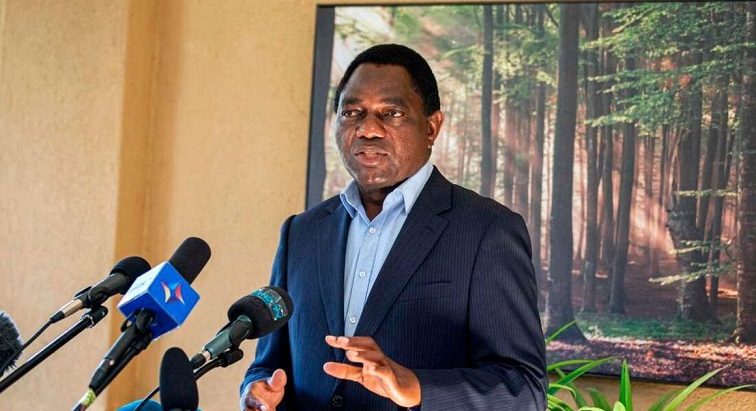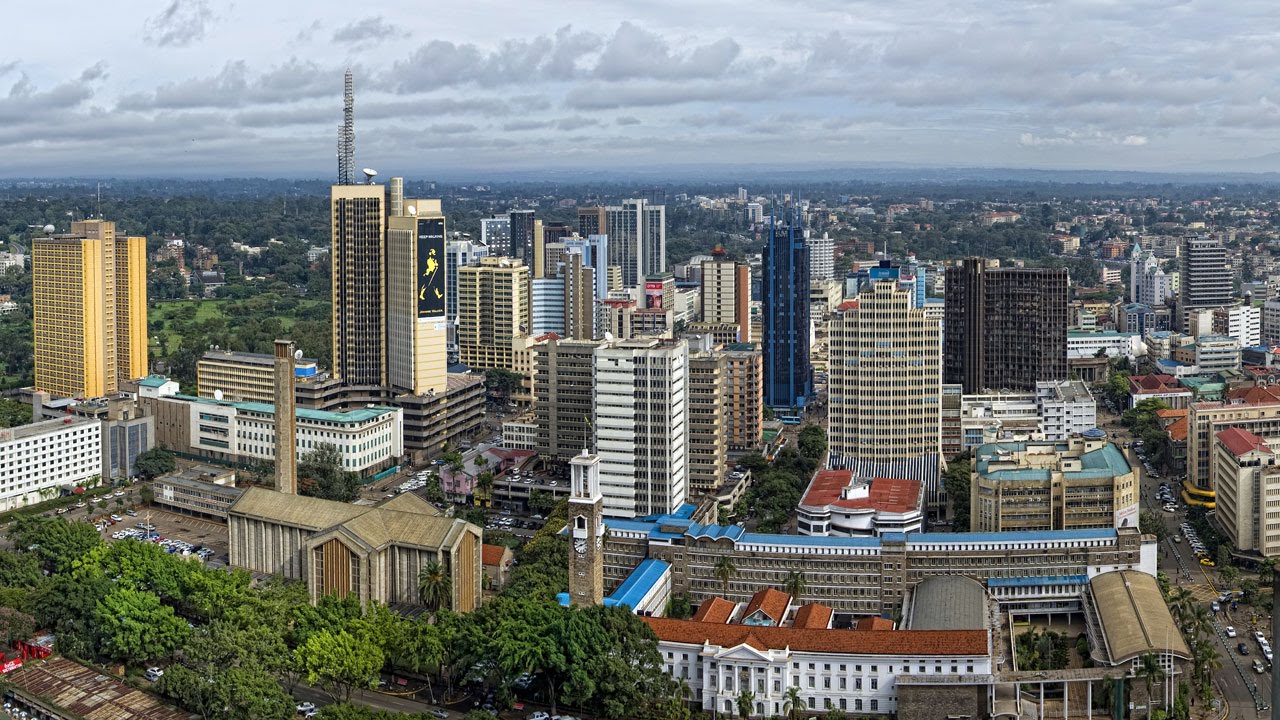Zambia President-Elect Hakainde Hichilema
Zambia has joined a small but a growing list of African countries where ruling parties have both won and lost elections; in the process inching towards becoming democracies.
Today the Electoral Commission of Zambia declared businessman Hakainde Hichilema of the United Party for National Development-UPND after defeating the incumbent Edgar Lungu of the Patriotic Front.
Hichilema garnered 2,810777 votes against Lungu’s 1,814201 votes. This is the second time that an opposition party has won an election in Zambia. The first was in 1991, after the independence President Kenneth Kaunda opened up the country to multiparty democracy, he and his party, the United National Independence Party, was defeated by the opposition candidate Patrick Chiluba of the Movement for Multiparty Democracy.
Chiluba ruled Zambia up to 2002 when he was replaced by Levy Mwanawasa; also of the same political party. When Mwanawasa died in 2008, he was replaced by his deputy Rupiah Banda until 2011 when he lost the presidency to Michael Sata of the Patriotic Front. After his death in office in 2014, Sata was replaced substantively by Edgar Lungu who has now also lost the election.
Therefore, in Zambia the ruling party has twice lost the presidency and unlike in countries like Ghana, these parties are yet to regain power. In just over a year, Lungu joins Peter Muthalika of neighboring Malawi as incumbents who have lost power. Other than Malawi and Zambia, other countries where both the ruling parties and the opposition have both lost and regained power include; Mauritius Nigeria, Ghana, Gambia, Senegal, Ivory Coast, Kenya, Madagascar, Liberia and Namibia.
For other countries like Tanzania, Burundi, South Africa, Botswana, although there has been change of leadership, it has been within the same ruling party. In an article titled, Opposition Coalitions and the Democratic Ouster of Dominant African Parties Lessons from the Kenya Elections of 2002, Patrick Asingo, argues that although change of leadership might be a good tenet of good governance, having one dominant political group might actually stifle democracy.
“Some of these parties seem so entrenched that even relatively free competitive elections have not been able to shake their political bases… One-party control tends to stifle intraparty democracy, as reflected in the incessant power struggles in South Africa’s ANC that resulted in the party’s recalling former president Thabo Mbeki. Such posturing would have proved suicidal if the ANC had encountered strong opposition…Moreover, South Africa’s experience under the ANC shows that one-party dominion can also undercut democracy by discouraging political participation because of the absence of institutionalized uncertainty about election outcomes…? Asingo writes.
In a research done by the AfroBarometer, on why opposition parties in southern Africa struggle to win power, it was discovered that there’s a much more lopsided distribution of power and resources for opposition parties in countries with dominant governing parties than for those in competitive party systems. “This, coupled with a lack of governance experience, makes it difficult for opposition parties to be seen as credible alternatives. The Botswana Democratic Party, in power since independence in 1966, is the region’s most enduring dominant party. It has even adopted the slogan, there is still no alternative,” the report reads in part. Based on this, it would therefore suffice to note that even after Tanzania changing Presidents six times its democratic credentials cannot be equated to that of Kenya which is ranked above Tanzania in the latest democracy ranking of the Economist Intelligence Unit.
Dr. Sam Kazibwe, a political pundit and lecturer at Uganda Christian University, agrees that change in leadership alone is not enough an indicator to show that the country has attained a high degree democracy although it’s an important ingredient. “But it’s safe to say that Zambia is on the highway to high level democracy because it has been tested. In 1991 Kaunda had the ability to hang onto power but he chose not to. This election was also another big test like it was in 1991, there has been tensions in the country, the army was deployed on the streets but even in that situation, when it became clear that Lungu had lost, he succumbed and agreed to let the new constitutional order take place. So, I think it’s safe to say Zambia is on the path of democratization,” says Kazibwe.
Asked about the democratic credentials of countries like South Africa, Botswana and Tanzania where there has been change of leadership but within the same political party, Kazibwe said there is no one definition of democracy. “My firm belief is that democracy is culturally relative, the way democracy is practiced in the United States is not the way it is in Britain or France but at least the majority of the people in those countries are comfortable with the type of democracy they have. For Tanzania, I think it has a long way to go despite the fact that it has achieved what has alluded many of its neighbors. But before they reach that state where they can accommodate views of those they don’t agree with, you might not be able to say that they are on that steady path to high level democracy,” says Kaziibwe.
For his part, Dr. Abdallazaake Joseph Kasule a research fellow at Makerere University Institute of Social Research, the purveyors of western liberal democracy can argue that the victory of Hichilema shows how popular electoral democracy is the best way for political transitions.
“But it cannot be compared to other countries in Africa such as South Africa or Tanzania where leaders have been changed but all coming from the same political parties. And neither can the electoral victory of the Zambian opposition be compared to other states where leadership have shifted from one group to another. The key issue must be to understand the unique current or historical conditions that have influenced the changes in each case. Maybe, the defeated government of Zambia has failed to realize many historical promises and aspirations of its society amidst a changing global environment, worsened by uncertainties of the Covid-19 pandemic and poverty. So, we cannot run quickly to argue that democracy is at work, even if there is a slight indicator that it is,” says Kasule.
But for now, Dr Kizza Besigye, the four times opponent of President Museveni and Robert Kyagulanyi Ssentamu who succeeded him in the role says, Zambians have a reason to celebrate. “This is not only a Zambian victory, but a victory for Africa and democracy,” Kyagulanyi says.
-URN





